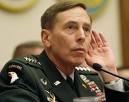Friday
Mar192010
Israel-Palestine: Gaza Rockets, Settlements, & Relations with Washington
 Friday, March 19, 2010 at 0:01
Friday, March 19, 2010 at 0:01  Gaza Rocket Attack: After Gaza militants fired a Qassam rocket into the western Negev on Thursday, killing a Thai foreign worke, Israel's response was firm. Deputy Foreign Minister Danny Ayalon said, "With or without Goldstone [Report on the Gaza War], Israel will defend its citizens. Today we see how absurd the Goldstone report was."
Gaza Rocket Attack: After Gaza militants fired a Qassam rocket into the western Negev on Thursday, killing a Thai foreign worke, Israel's response was firm. Deputy Foreign Minister Danny Ayalon said, "With or without Goldstone [Report on the Gaza War], Israel will defend its citizens. Today we see how absurd the Goldstone report was."According to the Israeli Defense Forces, more than 100 rockets have been fired from Gaza into Israel since Operation Cast Lead ended in January 2009. Although Hamas did not take the responsibility, Deputy Defense Minister Matan Vilnai declared the Palestianian organisation responsible. Deputy Premier Silvan Shalon vowed that "the Israeli response will be appropriate. It will be strong," adding, "This is a crossing of the red line, which Israel cannot accept."
Israel-Palestine Video: Biden’s Settlements Humour
The killing came an hour after the EU's High Representative for Foreign Affairs and Security Policy, Catherine Ashton, stepped into the Gaza Strip. She said:
I condemn any kind of violence, we have got to find a peaceful solution to the issues and problems.
I'm extremely shocked by the rocket attack and the tragic loss of life. I said when I came to Israel that part of the reason for my trip to this region is to express my concern that we move as quickly as we can to proximity talks.
UN Secretary General Ban Ki-moon joined the condemnation, "All such acts of terror and violence against civilians are totally unacceptable and contrary to international law."
As for the planned construction of an extra 1,600 housing units in East Jerusalem, Israeli Foreign Minister Avigdor Lieberman on Wednesday said that the demands of the United States and the international community are unreasonable: "This demand from the international community is mainly an opportunity to increase pressure on Israel and to demand unreasonable things."
On Thursday, Lieberman's Deputy Minister continued the official line, "We have never asked the permission of anyone to defend ourselves, and we will proceed in a similar fashion."
President Shimon Peres told EU policy chief Ashton that Israel reserved the right to build in Jerusalem, adding that its construction policy in the capital has not changed in 40 years.
Moreover, Israel's Ambassador to the United States, Michael Oren, in an opinion piece published by The New York Times on Thursday, argued that the construction in East Jerusalem is not Netanyahu's invention, as it has been pursued since 1967 within Washington's knowledge. He added:
We should not, however, allow peace efforts, or the America-Israel alliance, to be compromised by Israel's policy on Jerusalem.
Consistently, Israel has held that Jerusalem should remain its undivided capital and that both Jews and Arabs have the right to build anywhere in the city.
Amidst intense chatter of a rift between the US and Israel, President Barack Obama, in an interview with Fox News, said that there was no crisis in ties, despite the construction plan. Obama continued:
Israel is one of our closest allies, and we and the Israeli people have a special bond that's not going to go away.
But friends are going to disagree sometimes...
There is a disagreement in terms of how we can move this peace process forward.
The actions that were taken by the interior minister in Israel weren't helpful to that process. Prime Minister Netanyahu acknowledged as much and apologized for it.
This indicates that Netanyahu has probably responded to Washington's demands even before Wednesday. Late Thursday, Jerusalem had reportedly agreed to postpone the execution of the contentious Ramat Shlomo construction plan, while not canceling it altogether.
Haaretz says that, in a phone call between Netanyahu and Clinton, the Israeli PM reportedly conveyed a detailed list of gestures Jerusalem was willing to perform in order to restart negotiations with the Palestinians. These gestures allegedly include the release of Palestinian prisoners, the removal of West Bank checkpoints and perhaps even a willingness to transfer West Bank territories to PA control.
On Thursday, French news agency AFP reported that Syrian President Bashar al-Assad stated that peace with Israel was "impossible" as the government headed by Prime Minister Benjamin Netanyahu was not a real partner for talks. He called the construction plan of new East Jerusalem housing units as a "real obstacle," which would create "more wars and tension" in the entire region, adding that the Israeli government "cannot be considered a partner as long as it responds to calls for peace with settlements and the Judaization of (Muslim) holy sites."
tagged  AFP,
AFP,  Avigdor Lieberman,
Avigdor Lieberman,  Ban Ki-Moon,
Ban Ki-Moon,  Barack Obama,
Barack Obama,  Bashir al-Assad,
Bashir al-Assad,  Benjamin Netanyahu,
Benjamin Netanyahu,  Catherine Ashton,
Catherine Ashton,  Danny Ayalon,
Danny Ayalon,  East Jerusalem,
East Jerusalem,  European Union,
European Union,  Fox News,
Fox News,  Gaza Strip,
Gaza Strip,  Goldstone Report,
Goldstone Report,  Ha'aretz,
Ha'aretz,  Hamas,
Hamas,  Hillary Clinton,
Hillary Clinton,  Israel,
Israel,  Israeli Defense Forces,
Israeli Defense Forces,  Jackson Diehl,
Jackson Diehl,  Matan Vilnai,
Matan Vilnai,  Michael Oren,
Michael Oren,  Shimon Peres,
Shimon Peres,  Silvan Shalon,
Silvan Shalon,  Syria,
Syria,  The New York Times,
The New York Times,  United Nations,
United Nations,  West Bank in
West Bank in  Middle East & Iran
Middle East & Iran
 AFP,
AFP,  Avigdor Lieberman,
Avigdor Lieberman,  Ban Ki-Moon,
Ban Ki-Moon,  Barack Obama,
Barack Obama,  Bashir al-Assad,
Bashir al-Assad,  Benjamin Netanyahu,
Benjamin Netanyahu,  Catherine Ashton,
Catherine Ashton,  Danny Ayalon,
Danny Ayalon,  East Jerusalem,
East Jerusalem,  European Union,
European Union,  Fox News,
Fox News,  Gaza Strip,
Gaza Strip,  Goldstone Report,
Goldstone Report,  Ha'aretz,
Ha'aretz,  Hamas,
Hamas,  Hillary Clinton,
Hillary Clinton,  Israel,
Israel,  Israeli Defense Forces,
Israeli Defense Forces,  Jackson Diehl,
Jackson Diehl,  Matan Vilnai,
Matan Vilnai,  Michael Oren,
Michael Oren,  Shimon Peres,
Shimon Peres,  Silvan Shalon,
Silvan Shalon,  Syria,
Syria,  The New York Times,
The New York Times,  United Nations,
United Nations,  West Bank in
West Bank in  Middle East & Iran
Middle East & Iran 



